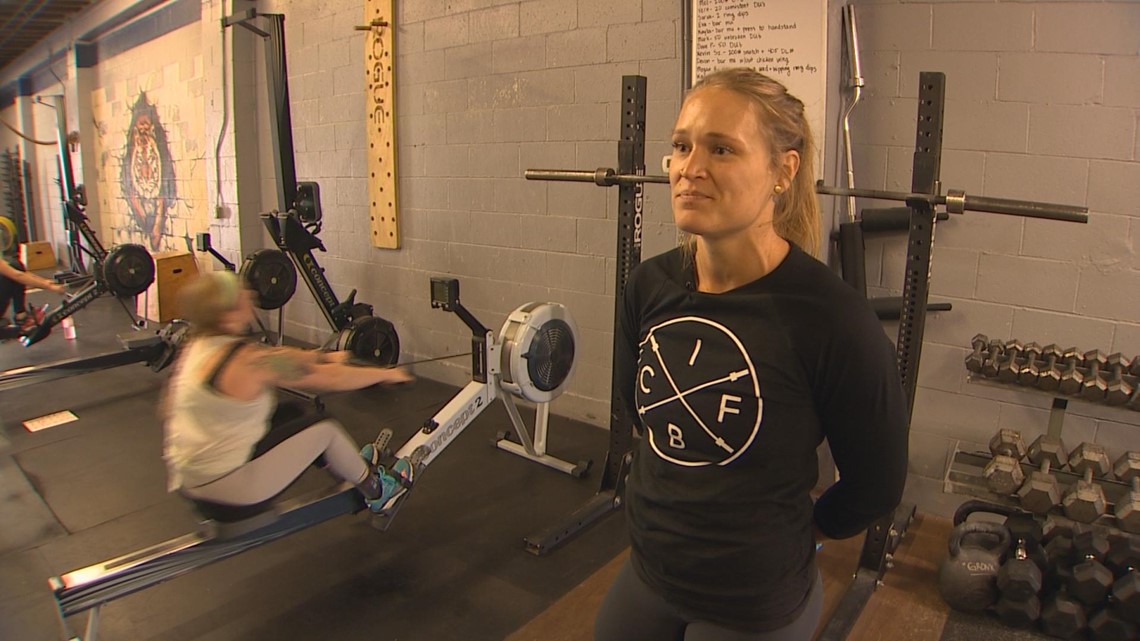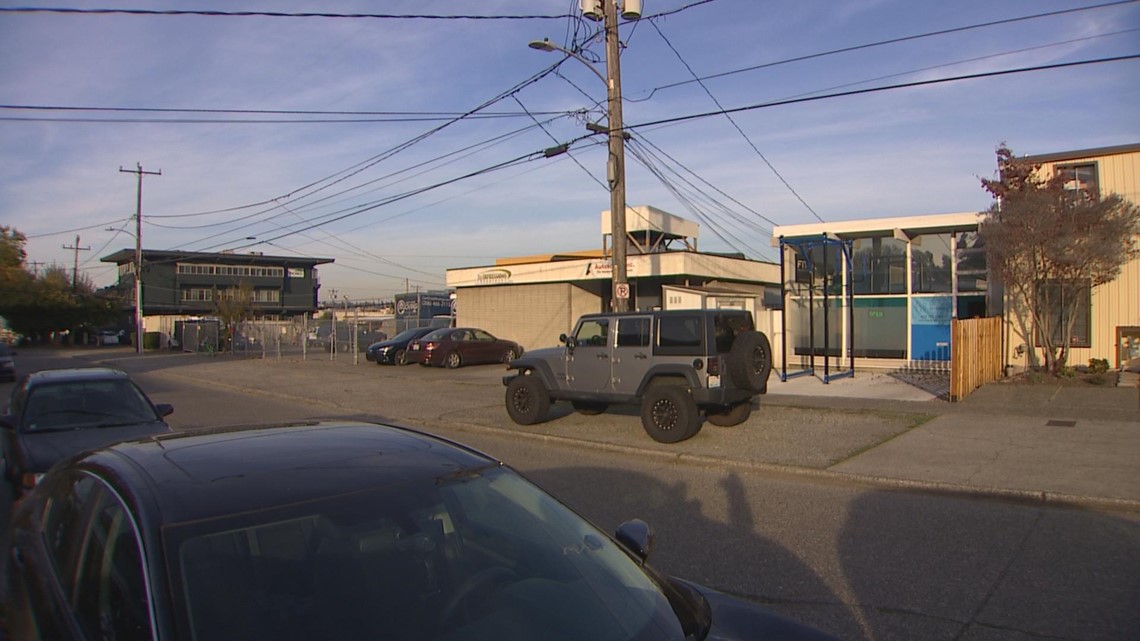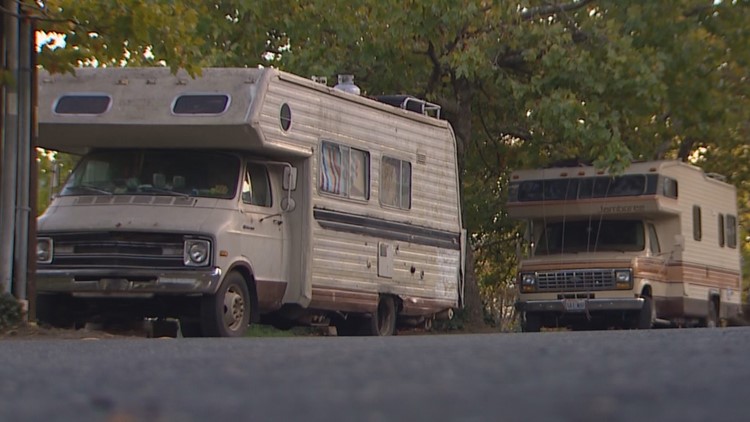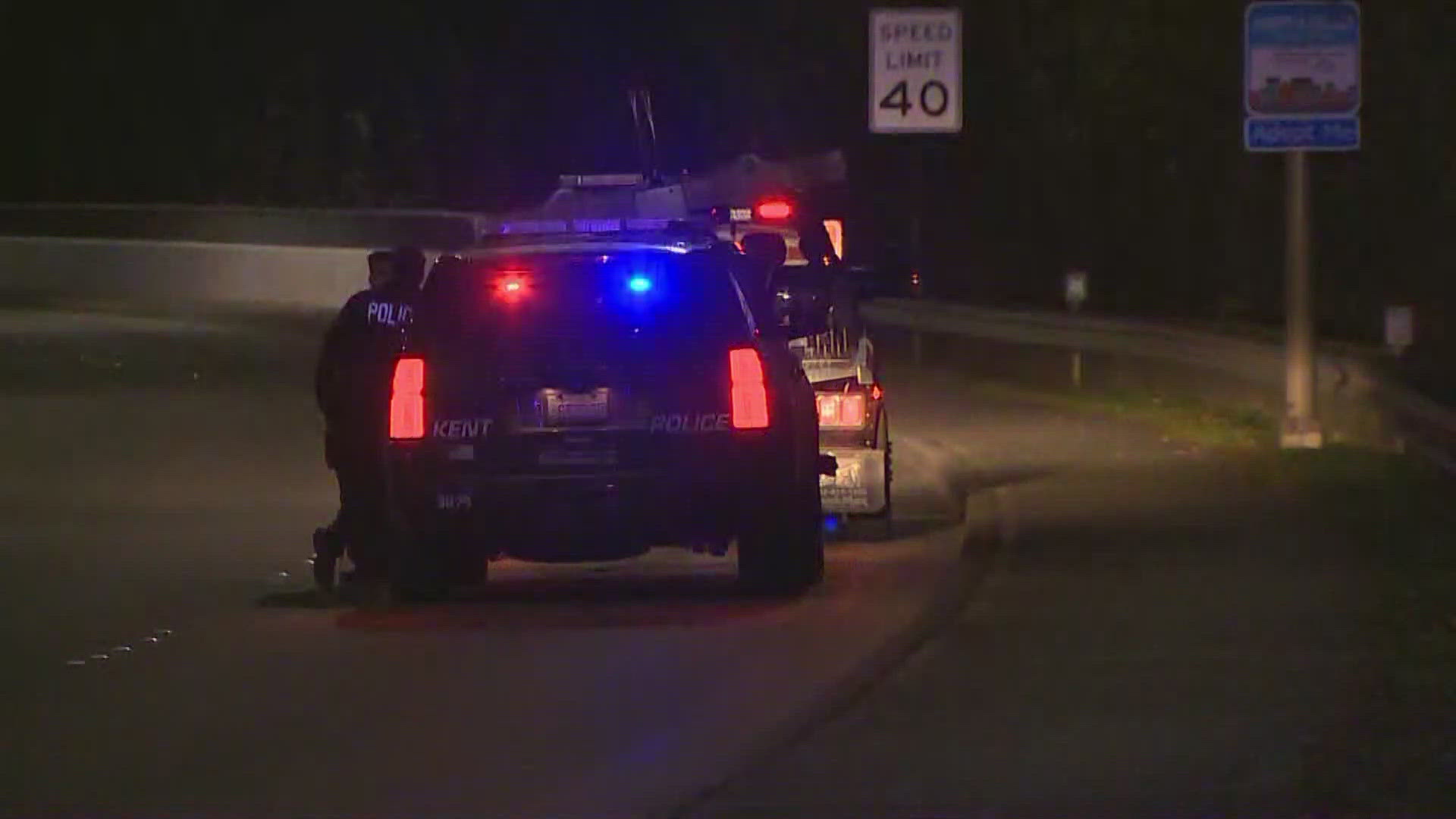Several Seattle business owners are raising concerns over recreational vehicles parked in front of their properties after one business was damaged by a similar vehicle.
Dan Lehr, the owner of West Seattle Health Club, says a converted old “party bus” struck the building and sparked a fire, causing $200,000 in damage to his business early Wednesday morning.
Lehr said he'd seen the vehicle parked at an adjacent homeless encampment on Andover, which includes dozens of derelict RVs and buses.
Seattle police have not arrested the driver, who they believe fled the scene. A spokesman said they have no official indication the driver was living in the vehicle.
Despite the investigation, Lehr said the encampment concerned him.
“What I’m more frustrated with is the RVs are still there,” he said. “Just the same old thing they always do.”
Aleta Judson runs Crossfit Interbay. She was leading a class there Thursday night.
“Remember, just keep moving,” Judson said to the athletes.
It’s what doesn’t move that bothers her, like the RVs often parked on nearby 21st Ave W, and on 23rd Ave W.


“We’ve had stretches in the summertime where they would be out on our street in front of the gym for weeks at a time,” said Judson.
“It doesn’t feel very safe at night when I’m here alone and know there are people out there,” she added.
It’s a complaint shared by several business owners.


Frank Firmani owns a building nearby. He’s expressed frustration with the campers, including drug use and debris buildup in the camps.
“I’ve actually seen people using drugs outside the campers in the middle of the day,” said Judson. “Which is not great to have in your area.”
In 2017, the King County one-night survey found 2,314 people were living in vehicles. In 2018, that number grew to 3,372.
Firmani said he sometimes blows an air horn near the parked campers, and that he’s had some success approaching the inhabitants and politely asking them to move.
“There’s a sea-change, however slight, but it is getting better,” he said.
Roscoe Manaro is staying in his van near Fishermen’s Terminal until he can ship out on a vessel bound for Alaska. He says people shouldn’t be so quick to judge.
“These guys down here, they try to stay away from residential areas,” Manaro said. “They try to stay in industrial areas, and there’s no safe place to go. If there was a safe place to go, I think it’d be a lot better.”
Manaro said he understands the businesses’ perspective but wants to be respected as a person too.
“I actually have a guy that comes by and calls me scum at least once a day,” he said. “It really grinds on you. You know you’re better than that, but these people don’t know you. They have their perceptions about what they think is going on, and human nature seems to only want to remember the bad things.”
Manaro says the honks and harassment wear him down.
“It just makes you feel this big,” Manaro said holding up thumb and forefinger slightly apart. “It’s tough. Really tough.”
Judson said she wants the city to help folks living without a home, instead of allowing them to stay near her business.
“They just say to continue to report them, and that’s the only solution they have at this time,” said Judson. “Not a permanent solution, for sure.”
Seattle police said it’s the department's position that living in a vehicle is not a crime in itself, but they will investigate reports someone is committing another crime.
A police spokesperson also noted that ticketing these RVs is separate from criminal issues.



